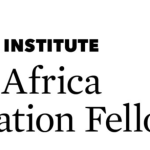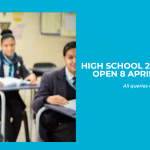East Africa Biodiversity Story Grants 2022 for East African Journalists
Table of Contents
When is Application Deadline?
15th October 2022
Tell Me About Award:
East Africa is a global biodiversity conservation priority, but systematic conservation planning is hampered by the absence of a comprehensive understanding of the most prevalent biodiversity threats in the region.
There are known data gaps in understanding the top threats to biodiversity in many regions of sub-Saharan Africa, including East Africa. Improved awareness of the regional and sub-regional threats would help local and regional conservation projects and policymakers successfully address these threats, and ensure their strategies to ensure conservation and the sustainable use of biodiversity are more effective.
To meet this need, Internews’ Earth Journalism Network is seeking to award 10 journalists with grants of up to $1,200 to produce in-depth biodiversity and conservation feature stories in East Africa.
The stories, besides appearing in the successful journalists’ platforms, will also be showcased in the newly launched Biodiversity Knowledge Hub, led by EJN’s East Africa Wildlife Journalism project to improve media coverage of environment issues in Kenya, Rwanda, Uganda, Tanzania, and Rwanda.
This opportunity is part of EJN’s East Africa Wildlife Journalism project, which is supported by funding from the US Department of the Interior (DOI) and the US Agency for International Development (USAID).
Story themes
Story pitches must demonstrate an understanding of the importance of biodiversity in East Africa and region-specific threats to biodiversity conservation.
We welcome story ideas on East Africa’s charismatic megafauna but encourage applicants to consider pitching under-reported stories on other animal species, threatened birds, insects, plants or fungi as well.
Stories should demonstrate how human activity and people’s knowledge, beliefs, and customs either protect or harm biodiversity.
For instance, stories could focus on ongoing threats to East African biodiversity from natural habitat loss and degradation (especially from agricultural expansion to cultivate annual and perennial crops); logging and wood harvesting in natural forests; direct overexploitation of wildlife and fishery species (including from hunting and trade), and the spread of certain non-native invasive species.
We welcome stories that explore how decline and loss of biodiversity are reducing nature’s contributions to people in Africa and how transformational development pathways based on “green” and “blue” economies can enable human well-being improvements that do not come at the expense of the environment.
What Type of Award is this?
Workshop
Who can apply?
Journalists from Kenya, Uganda, Tanzania and Rwanda are welcome to apply. All applicants are strongly encouraged, but not mandated, to complete EJN’s online course on biodiversity before submitting their proposal to EJN.
Groups of journalists are eligible. However, the application must be made in the name of one lead applicant. Lead applicants are responsible for communicating with EJN and receiving funds on the group’s behalf, if awarded.
For the purposes of this grant opportunity, we will only be accepting applications in English. Unfortunately, we do not have the capacity to consider applications in other languages at this time. Applicants must either have a working understanding of English or have a translator available to assist with communication with Internews staff.
Applications are open to journalists working in any medium (online, print, television, radio) and other expert media practitioners with professional reporting experience. Photojournalists and multimedia practitioners with published visual work are also eligible. We welcome applications from experienced reporters with a track record of covering environmental and climate issues. Experience in investigative reporting, particularly on wildlife or biodiversity issues, is preferred.
We encourage applications from freelance reporters and staff from all types of media organizations – international, national, local and community-based.
EJN reserves the right to disqualify applicants from consideration if they have been found to have engaged in unethical or improper professional conduct.
How are Applicants Selected?
Applicants should consider the following points when devising their story proposals.
- Relevance: Does the proposal meet the criteria and objectives of the call? Why does this story matter and to whom? Is the main idea, context and overall value to the target audience clearly defined?
- Angle: If the story has been covered, does your proposal bring new insights to the topic or offer a fresh angle?
- Impact: What is the audience size of the proposed media outlet? Does the proposal have a compelling narrative or investigative element that will inform and engage, draw attention, trigger debate and spur action?
- Innovative storytelling: The use of creative approaches, multimedia and data visualization will be considered a plus and should be explained in detail in the proposal.
- Feasibility: Can the story be realistically completed within the target time frame? Is the budget realistic? Judges will strongly evaluate and consider whether the budget is reasonable and is aimed at covering costs needed for the research and reporting rather than externalities.
- Diversity: We will take gender and geographical distribution into account when selecting the grantees in addition to the criteria above.
- Plan for timely publication: Reporters, whether freelance or employed at a media outlet, will need to include a letter of support from an editor in their application, committing to publish no later than March 15, 2023.
Which Countries are Eligible?
East African countries
How Many Positions will be Given?
10
What is the Benefit of Award?
We expect to award up to 10 grants with an average budget of US$1,200 each.
How to Apply for Program?
- Click the ‘Apply now’ button at the top of the page.
- If you have an existing account, you’ll need to log in. Since we recently updated our website, you might have to reset your password by clicking the “Forgot password?” link in the log in page. If you don’t have an account, you must register by clicking “Log in” on the top right of the page and click the “Sign up” link at the bottom of the page that opens. Click here for detailed instructions on how to create an account, and here for detailed instructions on how to reset your password.
- If you start the application and want to come back and complete it later, you can click ‘Save Draft.’ To return to the draft, you’ll need to go back to the opportunity and click ‘Apply now’ again to finalize the application. Applications should provide a detailed budget in an Excel spreadsheet with justification for the amount requested. Download the budget template now by clicking on this link.
- All applicants are required to provide a signed letter of support from their editor, explicitly stating that the media outlet will publish/air the stories produced as a result of this grant.
- Applicants will also need to submit two samples of stories or links to relevant work.
Note: You’ll be asked to upload these supporting documents once you start the application process, so please have them handy.
If you encounter difficulties with submitting your application or have questions about the grants, please email [email protected]. Do not contact any other Internews email regarding this opportunity, as we will not receive it.
Applications submitted after the deadline will not be considered.
GOODLUCK!








